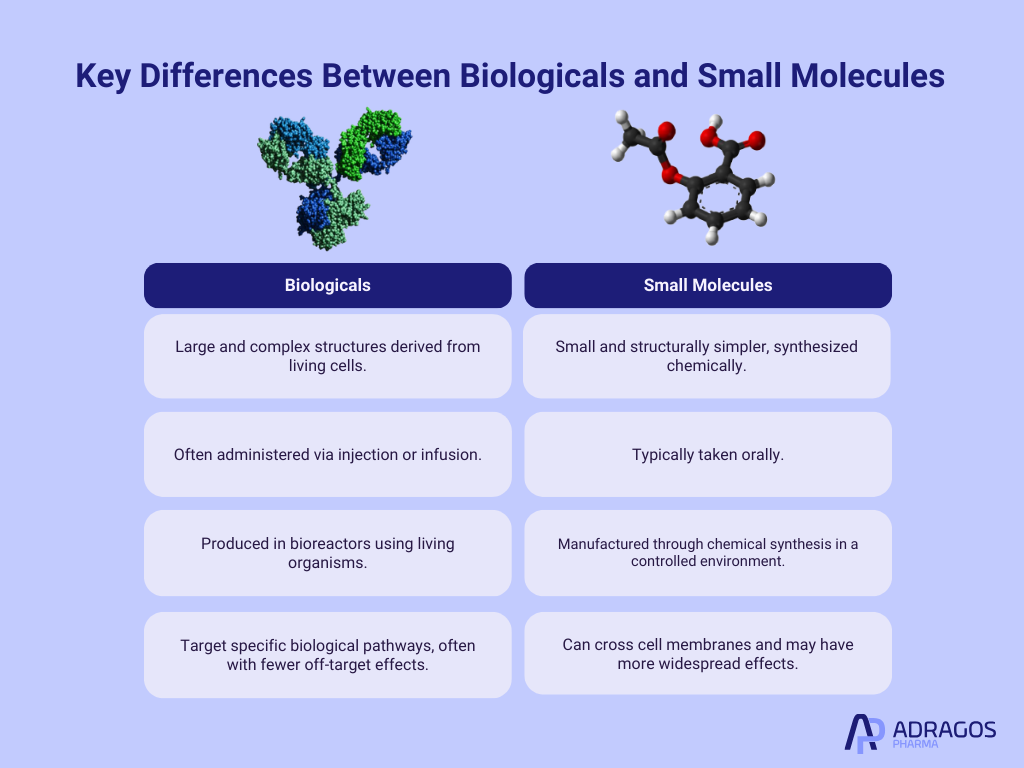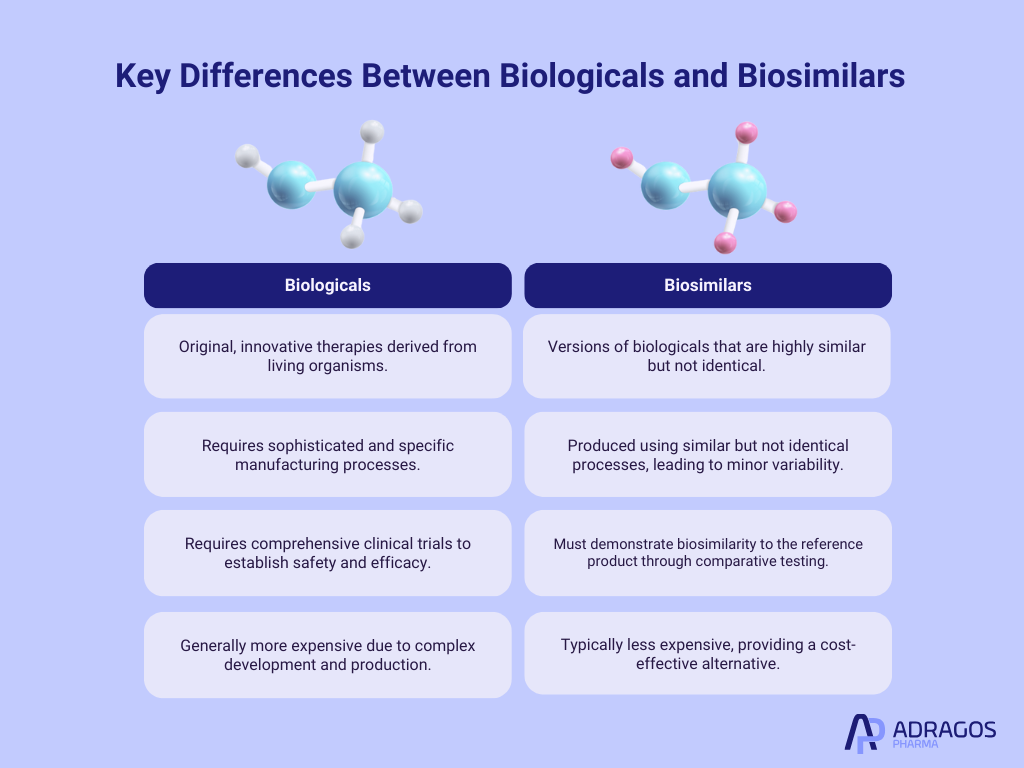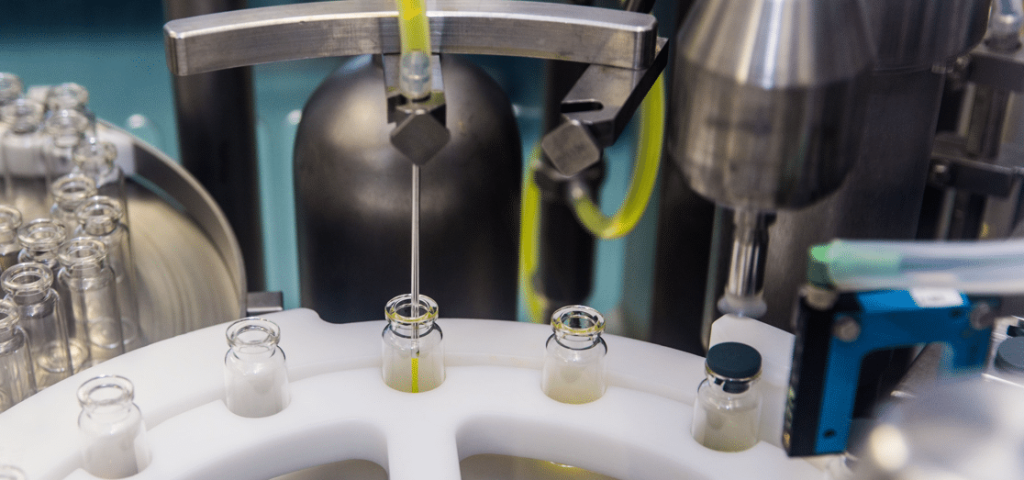The realm of healthcare is witnessing a pivotal transformation, courtesy of the advent and growing integration of biologics in therapeutic regimens. As a cornerstone of modern medicine, biologics offer promising new prospects for conditions previously deemed challenging or unmanageable with conventional pharmacotherapy. For stakeholders in the pharmaceutical and Contract Development and Manufacturing Organization (CDMO) industries, understanding the scope and intricacies of biologics is crucial to harness their potential effectively.
What are Biologics?
At its core, the term ‘biologics’ encompasses a broad category of products, all derived from living entities. These therapeutic agents can be proteins, tissues, genes, or cells that are meticulously harvested and cultivated to treat a vast array of diseases with unprecedented precision. Unlike traditional small-molecule drugs, which are synthesized through chemical processes, biologics are produced using complex biotechnological methods involving living organisms such as mammalian cell lines or microbes.
Biologics represent the quintessence of cutting-edge biomedical progress, intertwining molecular biology and bioengineering to craft medications that can specifically target pathological processes at the molecular and cellular levels. Biologic medicine targets specific parts of the immune system to treat various diseases, enhancing therapeutic efficacy while mitigating associated systemic side effects.
Categorizing Biologics: A Dive into Diversity
Biologics are not a monolith; they constitute various forms each tailored to engage with the body’s intricate systems uniquely. The primary classes of biologics include:
- Monoclonal Antibodies (mAbs): Engineered to mimic natural antibodies, these biologics can precisely target and neutralize specific pathogens or disease markers.
- Fusion Proteins: These are designed by fusing genetic material from different sources to produce proteins that can inhibit disease pathways.
- Growth Factors: Involved in wound healing and tissue regeneration, these biologics play critical roles in managing diseases that affect the body’s ability to repair itself.
- Vaccines: These biologics train the immune system to defend against specific infectious agents by introducing small, harmless pieces of the pathogen to stimulate an immune response.
The Therapeutic Applications of Biologics: Revolutionizing Treatment Paradigms
The advent of biologics has heralded new treatment paradigms across a spectrum of conditions, particularly those involving the immune system and inflammatory pathways. Conditions such as rheumatoid arthritis, psoriatic arthritis, and inflammatory bowel disease have seen significant advances with biologic therapies, which offer targeted intervention to modulate the immune system specifically and potently.
Moreover, biologics have opened new avenues in treating and managing chronic inflammatory diseases, blood disorders, and specific types of cancer. This includes conditions like Crohn’s disease, a chronic inflammatory disease that affects the digestive system. Their ability to specifically target disease mechanisms while sparing healthy cells underpins their effectiveness and minimizes the breadth of adverse effects typically seen with traditional chemotherapy. Additionally, gene therapy represents a promising frontier in advanced medical treatments, harnessing biotechnology to target diseases more precisely.
Biologics in the Treatment of Autoimmune Diseases
Biologics have revolutionized the treatment of autoimmune diseases, offering targeted and effective relief from symptoms and slowing disease progression. These innovative therapies work by specifically targeting components of the immune system that are involved in the pathological processes of autoimmune diseases. This precision allows for more effective management of conditions that were once difficult to treat with traditional medications.
Rheumatoid Arthritis: Biologics as a Treatment Option
Rheumatoid arthritis (RA) is a chronic autoimmune disease that causes inflammation and pain in the joints. Biologics have become a crucial treatment option for RA, offering significant improvements in symptoms and quality of life. Biologics such as tumor necrosis factor (TNF) inhibitors, interleukin-6 (IL-6) inhibitors, and Janus kinase (JAK) inhibitors have been shown to reduce inflammation, slow disease progression, and improve functional ability. These biologic drugs work by targeting specific molecules involved in the inflammatory process, thereby providing more effective and sustained relief compared to traditional disease-modifying antirheumatic drugs (DMARDs).
Inflammatory Bowel Disease: Biologics for Crohn’s and Ulcerative Colitis
Inflammatory bowel disease (IBD) includes conditions such as Crohn’s disease and ulcerative colitis, which cause chronic inflammation and damage to the digestive tract. Biologics have become a vital treatment option for IBD, offering targeted therapy for moderate to severe disease. Biologics such as TNF inhibitors, IL-12/23 inhibitors, and integrin inhibitors have been shown to induce and maintain remission, reduce symptoms, and improve quality of life. These biologic medications work by blocking specific pathways involved in the inflammatory response, thereby reducing the chronic inflammation that characterizes these conditions.
Other Autoimmune Diseases: Biologics for Lupus, Psoriasis, and More
Biologics are also used to treat other autoimmune diseases, including systemic lupus erythematosus (SLE), psoriasis, and psoriatic arthritis. Biologics such as belimumab, rituximab, and ustekinumab have been shown to reduce inflammation, slow disease progression, and improve symptoms in these conditions. By targeting specific components of the immune system, these biologic medicines offer a more precise and effective approach to managing autoimmune diseases, providing patients with better control over their symptoms and improved quality of life.
Biologics vs. Small Molecules
In the realm of pharmaceuticals, the distinction between small molecules and large molecules (biologicals) is significant, both in terms of their chemical structure and their mode of action. Small molecules are typically low molecular weight compounds that can be easily synthesized and have the ability to diffuse rapidly across cell membranes. This allows them to target intracellular sites, and they are often designed to interact with specific enzymes or receptors within the body, making them highly effective for a broad range of diseases. In contrast, large molecules, or biologics, are complex proteins or nucleic acids with higher molecular weights. These are derived from living cells and are typically administered through injection or infusion because their size and complexity prevent absorption through the digestive system. Biologics are uniquely designed to target specific components of the biological pathways, which often makes them more effective for diseases that are difficult to treat with small molecules, such as autoimmune diseases and certain cancers. However, this specificity and complexity also lead to higher manufacturing costs and the need for stringent storage conditions.

Biologics vs. Biosimilars
A critical aspect for any CDMO or pharmaceutical professional is the distinction between biologics and biosimilars. While biologics are the original products derived from a biological source, biosimilars are akin to generic drugs. However, unlike generic drugs, which are identical copies of small-molecule drugs and often used in prescribing practices to enhance medication affordability,biosimilars are “similar” but not exact replicas of the original biologics due to the natural variability of biological production. Understanding and navigating these nuances is essential for ensuring regulatory compliance and therapeutic equivalence in clinical settings.

Regulatory and Manufacturing Challenges in Biologics
The production of biologics involves complex biotechnological processes requiring stringent regulatory oversight. CDMOs play a crucial role in this ecosystem, providing the necessary expertise and infrastructure to develop, manufacture, and ensure the quality of these sophisticated products. From adhering to the Food and Drug Administration (FDA) guidelines to managing the supply chain of delicate biological materials, the challenges are manifold but manageable with the right expertise and operational excellence.
Looking Ahead: The Future of Biologics in Healthcare
As we continue to advance technologically, the role of biologics in healthcare is set to expand further. Most biologic drugs encompass various types, uses, and potential side effects, highlighting their complexity and specific targeting of the immune system. Innovations in gene editing, personalized medicine, and regenerative therapies are expected to drive this sector towards more sophisticated and highly personalized treatment modalities. For pharmaceutical companies and CDMOs, staying at the forefront of these developments will be key to leveraging the full potential of biologics.
Biologics are reshaping the landscape of medical treatment, offering new hope and enhanced outcomes for patients across the globe. Their development and manufacturing represent the pinnacle of modern biomedical innovation, combining cutting-edge science with the intricacies of biological systems to deliver treatments that are as precise as they are effective.
FAQs About Biologics
What is the most common biologic drug?
Among the most widely used biologic drugs are monoclonal antibodies that target tumor necrosis factor (TNF), especially for treating autoimmune conditions such as rheumatoid arthritis.
Are biologics the same as steroids?
No, biologics and steroids differ fundamentally in their action and composition. Biologics are targeted therapies derived from living organisms, whereas steroids are synthetic drugs that broadly suppress inflammation and immunity.
What are the four types of biologics?
The four main types include monoclonal antibodies, fusion proteins, growth factors, and certain vaccines, each playing a distinct role in disease management and treatment.
Are biologics a form of chemotherapy?
While biologics can be used to treat cancer, they are not traditional chemotherapy. They are often used where precise targeting of cancer cells is possible, reducing the impact on healthy tissues and associated side effects.
